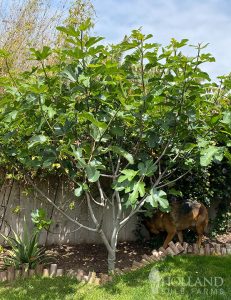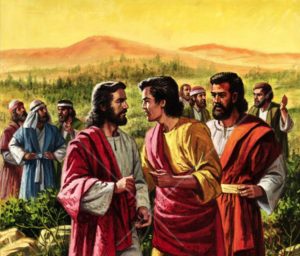 The readings this weekend continue the theme (as Father John has been reminding us) of endings that signal a beginning. Every “good night” holds the promise of a “good morning!” The sunset kisses the earth good-bye for a brief moment in time and surprises us with its rising on what seems to be the other side of the earth. Every death is a hand-off to new life. St. Augustine echoes this concept when he calls to God: “O Beauty, so ancient, so new.” Every “good-bye” uncovers a “hello” and every ending is a step to a new adventure. When does the “NEW” become “NOW”? When does “tomorrow” turn to “today”? When we let go of yesterday, where does it go? The character Tevya in Fiddler on the Roof sings about this phenomenon: “Sunrise, sunset; Swiftly flow the days; Seedlings turn overnight to sunflowers, blossoming even as we gaze. Sunrise, sunset; swiftly fly the years, one season following another.”
The readings this weekend continue the theme (as Father John has been reminding us) of endings that signal a beginning. Every “good night” holds the promise of a “good morning!” The sunset kisses the earth good-bye for a brief moment in time and surprises us with its rising on what seems to be the other side of the earth. Every death is a hand-off to new life. St. Augustine echoes this concept when he calls to God: “O Beauty, so ancient, so new.” Every “good-bye” uncovers a “hello” and every ending is a step to a new adventure. When does the “NEW” become “NOW”? When does “tomorrow” turn to “today”? When we let go of yesterday, where does it go? The character Tevya in Fiddler on the Roof sings about this phenomenon: “Sunrise, sunset; Swiftly flow the days; Seedlings turn overnight to sunflowers, blossoming even as we gaze. Sunrise, sunset; swiftly fly the years, one season following another.”
In our Gospel Pilate asks: “What is truth?” Jesus answers: “You shall know the truth, and the truth shall make you free.” A few evenings ago I was half-watching TV when out of my distraction I heard: “So, what is truth?” I’d started this reflection earlier in the day so the question seemed like part of another reality. A World War II veteran was sharing that upon retirement from active service, he’s been “down in the dumps”, experiencing a lack of appreciation for his years in service to our country in defense of freedom and truth. Then he’d recalled Jesus’ words: “The truth shall make you free.” He turned his bitterness into working with youth when he came to the realization that “The truth that makes you free, is the truth that stirs you to action.”
This weekend we observe the Solemnity of Christ the King which was first proclaimed universally as a feast in 1925 by Pope Pius IX. In 2015, the prescribed date was moved from October to the last Sunday in the church year and raised to a solemnity. At that time Pope Francis added a phrase to the title of the day: “Christ the King, the living face of the Father’s mercy.”
In tomorrow’s responsorial psalm we will proclaim: “The Lord is king; he is robed in majesty.” We often raise a hand in benediction as we sing: “May the blessing of the Lord be upon you.” If we believe it’s true that Jesus is Lord, why do we sometimes scramble to find a substitute to replace the word “Lord?” That raises the question: Is Jesus my King? Do I know him on my own or is my relationship with Jesus based on borrowed thoughts from books I’ve read or homilies and retreat talks that I’ve heard? Do I sing with conviction the sentiments of the kingly hymns that spring to mind: “Come, Christians, Join to Sing”, “Rejoice, the Lord Is King”, “Praise to our victorious King”? And let’s not overlook the triumphant echoing of a favorite Christmas carol: “Joy to the world! Let earth receive her king!”
At the other end of this week, we will be “jump-started” into the season of Advent, an experience of an “ending” that is a “beginning” – a time of waiting for the One who will come. He is the One who is promised to us in the second Mass reading from book of Revelation: “Behold, he is coming and everyone will see him; the Alpha and the Omega, the one who is and who was and who is to come.”
~Reflection by Sister Roberta Bailey, OSB






